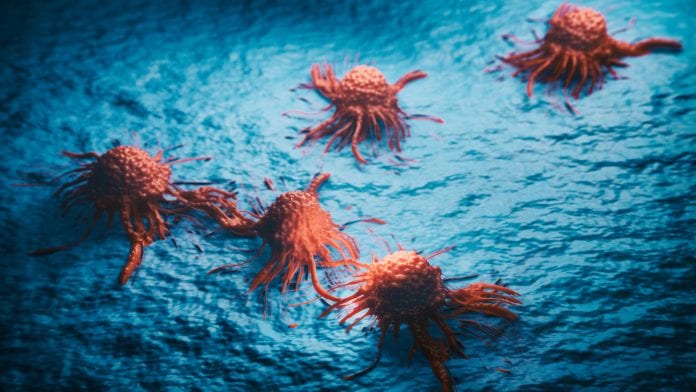
A novel study has potentially revealed the most optimal strategy for combatting metastatic melanoma by combining chemotherapy and BRAF oncogene inhibitors.
The study, conducted as a collaborative effort between researchers from the Hospital del Mar Medical Research Institute, Hospital del Mar, CIBER Cancer, and the Bellvitge Medical Research Institute, has distinguished that metastatic melanoma can be effectively treated with an amalgamation of chemotherapy and BRAF oncogene inhibitors.
The research has been published in the journal Oncogene.
Globally, metastatic melanoma is the leading cause of death from skin cancer; now, groundbreaking research may provide a crucial weapon in fighting the deadly disease. The team investigated the effects of combining two types of treatment to defeat malignant melanoma, with prior studies from the group already signifying that blocking BRAF oncogene expression can mitigate the ability of rectal and colon cancer cells repairing from chemotherapy treatment.
Fighting malignant and metastatic melanoma
The researchers assessed the performance of chemotherapy and BRAF oncogene inhibitors both separately and together on in vitro mice and tumour cells, with the combination of the two displayed to be superior in all trials after one week of treatment, with the benefits maintained at the treatment’s conclusion.
Dr Lluís Espinosa, the author of the study and a researcher at the IMIM-Hospital del Mar and CIBERONC, said: “We have demonstrated the therapeutic potential of combining the two treatments to eradicate cancer cells. This strategy not only prevents the appearance of resistance to one of the approaches but also offers a new therapeutic perspective for patients with mutations affecting the BRAF oncogene.”
Dual treatment
The investigation highlighted that when administered in low doses, chemotherapy avoids its toxicity. When combined with the standard treatment of BRAF inhibitors, it can have substantial effects on the development of metastatic melanoma. Subsequently, the combination of treatments eliminating tumour cells instead of destroying their growth would eradicate lengthy treatments and potential resistance.
The team is confident that this technique can be replicated to treat other forms of cancer, including rare types of melanomas that are currently untreatable due to lacking mutations in the BRAF oncogene. The team believe that this hypothesis can be easily assessed, as the treatments are already in use for routinely treating various tumour types.
Dr Fernando Gallardo, the co-author of the study and head of the dermatology department, said: “The mechanism is simple: by combining low-dose chemotherapy, which has very low toxicity, with BRAF inhibitors, we damage the cell’s DNA with the chemotherapy while at the same time we prevent the cell from repairing itself thanks to the BRAF inhibitors. This not only enhances the effect of each of the treatments, but it might make the effect irreversible.”
The biggest drawback with the BRAF inhibitor treatment for metastatic melanoma – the primary approach to the disease – is that the cancer cells can become resistant to the therapy and regrow, as the inhibitor only stops them instead of killing them. The team are optimistic that combining the treatment with chemotherapy can remedy this issue, avoiding certain resistance and relapse.









